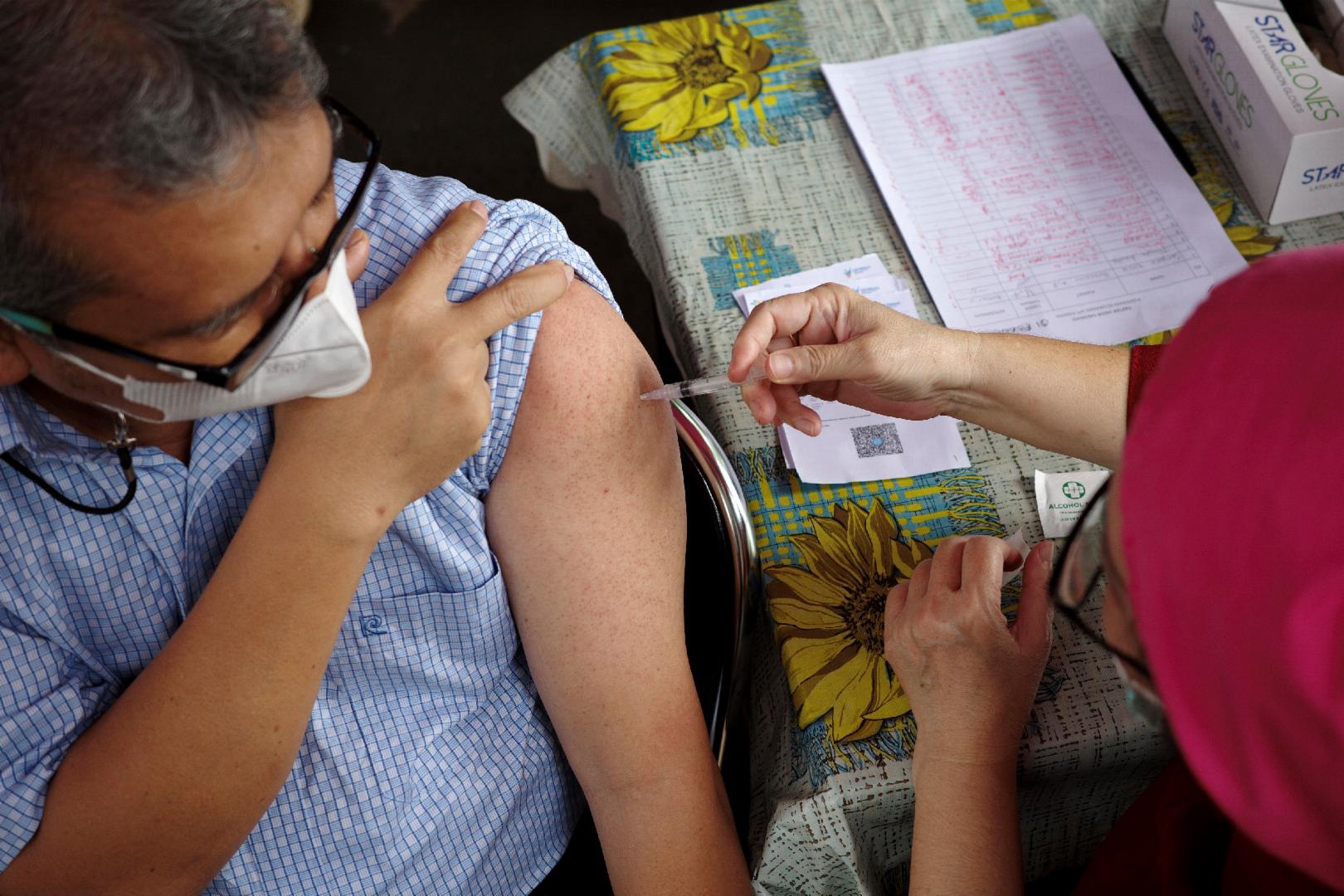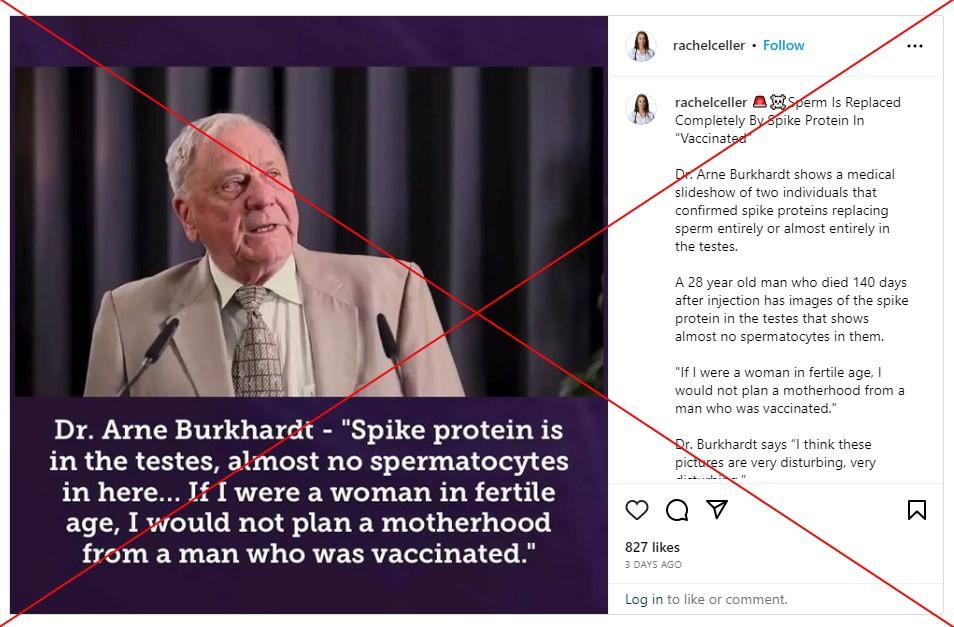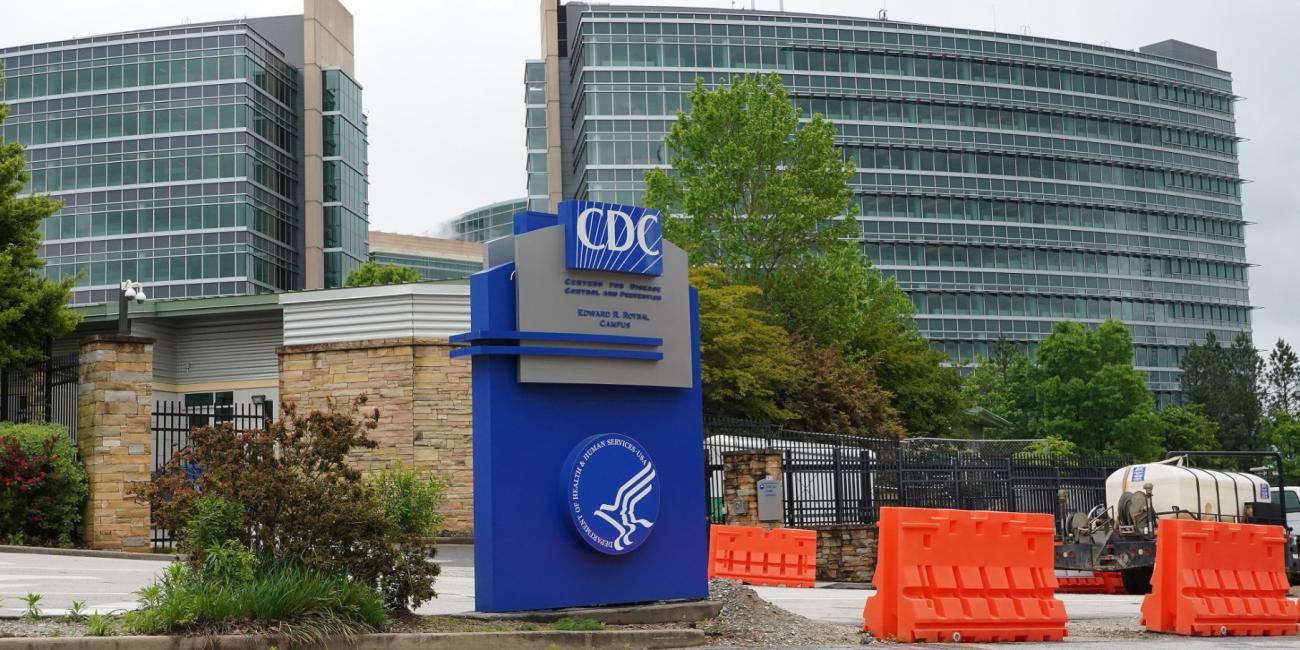
Claims that Covid-19 vaccines destroy sperm cells are false
- This article is more than two years old.
- Published on April 19, 2023 at 18:29
- 3 min read
- By Marisha GOLDHAMER, AFP Canada
"Sperm is replaced completely by spike protein in 'vaccinated,'" claims an April 8, 2023 Instagram caption.
The post shares an image with a quote attributed to Arne Burkhardt, a German researcher whom AFP has previously fact-checked for spreading vaccine misinformation.
"If I were a woman in fertile age, I would not plan a motherhood from a man who was vaccinated," the quote says.

The same claim circulated on Twitter in February 2023. The clip shared in the tweet is part of a longer video posted to Rumble in which Burkhardt discusses messenger ribonucleic acid (mRNA) Covid-19 vaccines.
AFP has previously debunked claims that the shots harm female fertility. Experts say safety monitoring has not detected problems for men, either.
"Based on the studies published so far, there is no scientific proof of any association between Covid-19 vaccines and fertility impairment in men or women," says an October 2022 analysis of research from around the world.
Guidance from the Canadian Fertility and Andrology Society says: "All advisory and regulatory bodies recommend that Covid-19 vaccinations are safe for people attempting to conceive."
Spike protein
The Pfizer-BioNTech and Moderna Covid-19 vaccines work differently than other shots.
Traditional vaccines contain weakened or dead forms of a virus so that the immune system can recognize and build antibodies against it. Covid-19 mRNA vaccines, meanwhile, deliver instructions to cells on how to build a harmless piece of the spike protein found on the surface of the coronavirus, teaching the body to recognize and fight the real thing.
"It is true that the mRNA from the vaccine goes to other places in the body, other than the muscle where it is injected," said James Lawler, a professor in the Division of Infectious Diseases at the University of Nebraska.
But there is no evidence this is harmful.
"Just the fact that there is spike protein in other places in the body doesn't necessarily mean that that is detrimental," Lawler said April 13. "It means that the body is developing an immune response in multiple places, which is probably a beneficial thing."
Lawler contrasted the body's response to vaccination with a Covid-19 infection, in which affected cells can express spike protein all over the body for a longer period of time.
"All of the data and all of the studies show consistently that you are much worse off getting Covid than you are from any potential side effects from the vaccines," he said.
Research demonstrates safety
Multiple studies have found the Covid-19 vaccines pose no danger to male fertility.
"After receiving the two doses of the vaccines, we did not observe a clinically significant sperm parameter decline within the cohort, suggesting the vaccines do not negatively impact male fertility potential," says a 2021 study that the American Society for Reproductive Medicine sent to AFP.
One of the paper's authors, urologist Ranjith Ramasamy, told AFP: "Our findings indicate that getting vaccinated does not have any adverse effects on fertility."
"We do not see any reason to advise men who wish to father a child against getting vaccinated," Ramasamy said in a March 21 email, referencing additional research from his team at the University of Miami.
"Considering the potential dangers of Covid-19 infection on women during pregnancy, we strongly recommend that individuals take all necessary measures to safeguard their partner during this period, which includes getting vaccinated."
More of AFP's reporting on vaccine misinformation is available here.
Copyright © AFP 2017-2026. Any commercial use of this content requires a subscription. Click here to find out more.
Is there content that you would like AFP to fact-check? Get in touch.
Contact us




